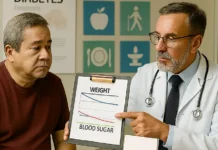AstraZeneca has established a five-year research collaboration with Harvard Stem Cell Institute (HSCI) to adapt a technique that creates human beta cells from stem cells.
AstraZeneca will use the technique in its screens of compound library to develop new treatments for diabetes.
HSCI co-chairman and Howard Hughes Medical Institute investigator Dr Doug Melton, along with his team, has developed a technique that allows producing unlimited quantities of beta cells from human induced pluripotent stem cells generated directly from adult cells.
AstraZeneca innovative medicines and early development and cardiovascular and metabolic diseases head Marcus Schindler said: “Professor Melton’s group has made an extraordinary breakthrough in the differentiation of human stem cells into human beta cells and our scientists are extremely excited to be working alongside his team.”
Under the deal, AstraZeneca will provide funding for HSCI team of investigators led by Dr Melton and is also creating an in-house team in M├Člndal of Sweden to support the research collaboration.
“Professor Melton’s group has made an extraordinary breakthrough in the differentiation of human stem cells into human beta cells.”
Researchers from each organisation will work jointly to interpret the biology behind the loss of human beta cell function and mass in diabetes.
In addition, the scientist will screen compounds against the cells produced to search for potential new medicines that could restore beta cell activity in diabetic patients.
Harvard University technology development head Isaac Kohlberg said: “AstraZeneca’s commitment to establish and fund this collaboration will help advance the development of new medicines that may ameliorate the need for diabetics to inject insulin, and prevent the numerous, potentially fatal complications of diabetes.”
The collaboration is in line with AstraZeneca’s strategic research approach in diabetes, aiming at restoring the function of the pancreatic beta cells and insulin sensitivity.
┬Ā



















